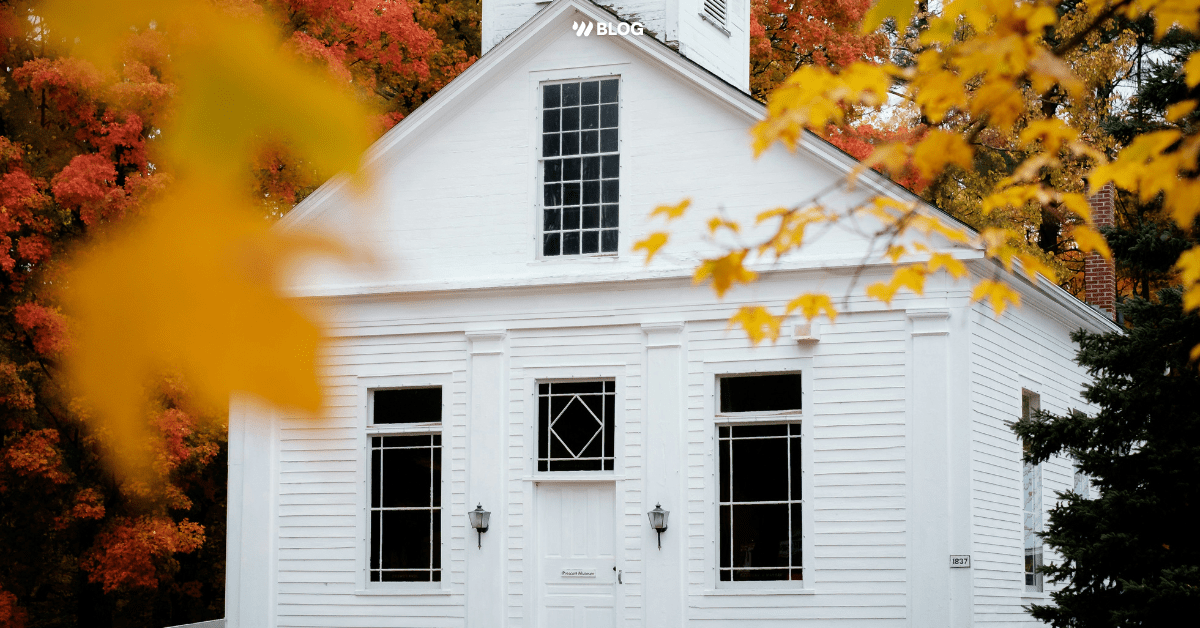At some point in our lives, we’ve all encountered that one song. You know the song that I’m talking about… It’s the one that you get nervous about when you see it on the Planning Center setlist. It’s the one that no matter how many times you’ve practiced it, you just can’t seem to get it right. Maybe it’s too fast, too complicated, or too technical.
There’s something about it that makes it that one song you just can’t play…
The good news is, there’s a way to get past it and master that song that’s been keeping you up at night. These tips and tricks are things that I wish I would have learned years ago. They have helped me reduce stress and anxiety in my own life and have helped make me a better musician. I hope they save you some time and encourage you to grow in your craft, regardless of what instrument you play.
Alright, let’s dive in. The first secret to mastering any worship song on your instrument is to:
1. MAKE A PLAN
I know that this sounds silly, but there is something really powerful about writing down your goals.
When you take any goal or idea and put it down on paper, you are turning something intangible into something measurable. It’s much easier to accomplish anything in life when we are able to visualize our goals instead of just thinking about them. So in the context of mastering a song, let’s put a plan in place.
Sometimes when you want to move forward, you have to go backward.
If planning is something that doesn’t come naturally to you, you can try mixing it up with a technique called Backwards Planning. It’s an incredible method that can be used for all kinds of different educational and training purposes, but for now, let’s check out how we can utilize this tool to help us master any worship song.
Step 1: Write down your goal and the date you want to complete it by. Instead of trying to master a song in one day (or the night before haha), try picking a future date that you want to perfect this song by and then start thinking backwards. Also, think about how many days or weeks you have to complete your goal.
Example: “By April 12th, I want to be able to confidently play all of the acoustic guitar parts for Ain’t No Grave by Bethel in time for our Easter services at church. I have 3 weeks to prepare for this song.”
Step 2: Think about the milestone you need to accomplish just before that so that you are able to reach your goal.
Example: “By April 10th, I want to be able to play this song completely from memory (without looking at any notes or chord charts) so that I will be able to play it confidently at my church.”
Step 3: Think back some more and ask yourself what do you need to accomplish to be able to get to the goal you made in Step 2.
Example: “By April 8th, I want to be able to play Ain’t No Grave all the way up to speed with some help from my notes and chord chart.”
Step 4: Work back again and think about what you need to do to get to your previous goal.
Example: “By April 5th, I want to have learned how to play all the guitar parts for this song slowly. Even though I can’t play them up to speed yet, I’m able to play all of the parts of really clean and clear.”
Step 5: Continue the process.
Example: “By April 1st, I want to have all of the individual licks learned for this song.”
Step 6: Continue the process. (Keep on going. You’re almost there!)
Example: “By March 29th, I want to be able to easily play the hammer-on and pull-off parts in this song.”
Step 7: Continue the process. (Only more step!)
Example: “By March 25th, I want to know all of the fingerpicking patterns and strum patterns that I’ll be using in this song.”
Step 8: Continue the process. (You did it!)
Example: “By March 22nd, I want to be familiar with the alternate tuning for this song and how to play the basic chords in this tuning.”
I’ve found that this process of looking backward can actually help give me a fresh perspective as I’m looking forward to new goals. It also prevents me from getting overwhelmed by trying to take on too big of a task all at once. This brings us to our next tip for mastering any worship song:
2. BREAK IT DOWN INTO SECTIONS
Let me take a second to tell you all about something that I know nothing about: running. Ok, I know a little more than “nothing,” but I definitely don’t know a lot.
I grew up playing baseball, I played football and ran track in high school, and then I went on to play college football for a year before I really started getting serious about music. If you’re not a sports person, stick with me because I’m also a musician, and this story will come full circle!
Anyways, I grew up playing sports and considered myself an athlete, but I always struggled running long distances. And when I say I struggled, I mean that I was literally the WORST at running anything over the length of a football field. I was always one of the fastest guys on my team, but I was always one of the last to finish when we were doing distance training.
After one practice, my coach came up to me and said, “Daniel, do you know how to eat an elephant?” Then he paused for a minute and looked at me like I actually knew what in the world he was talking about.
How do you eat an elephant? What is he talking about? Can you even eat an elephant, and WHY would anyone want to do that? Isn’t that illegal? Oh yeah, that’s definitely gotta be illegal…
“One bite at a time,” he said.
I realized that he wasn’t talking about elephants, and this wasn’t some really bad dad joke. He was talking about running. Of course he was! He’s a coach. My problem wasn’t that I was a bad athlete or a bad runner. My problem was that I didn’t know how to pace myself. I was trying to run at an unrealistic pace for the type of race that I was running.
You don’t start off training for a marathon by running 26.2 miles every day, and you can’t eat an elephant in a single bite. Thankfully, I’ve never had to do either of those things, but I can imagine that they would both be pretty painful.
A lot of times, we sit on our couches watching Netflix all year and then wonder why we weren’t able to finish the marathon that we trained for the night before. In a culture of instant gratification, the art of discipline and perseverance is slowly fading away, and it’s really easy to become overwhelmed when we face big obstacles.
Half the battle of mastering any difficult song is choosing not to give up. Half the battle is choosing to persevere when you’re facing adversity. Maybe the reason that you can’t get that drum fill right or that arpeggiated keys line down, or that challenging guitar riff is NOT because you are a bad musician. Maybe it’s because you’re not pacing yourself. Or maybe you’ve been running at an unrealistic pace, and you need to slow down.
“Ok, Daniel, so what do elephants and sweating a lot have to do with mastering this song that I can’t get right?”
The best way to accomplish something really challenging is to tackle it in smaller pieces. Even the most daunting songs that seem impossible to play can not only be learned but mastered if you are willing to take the time to gradually learn it little by little.
If you are really struggling with a song, try breaking it down into sections. If you are struggling with a section of a song, take the time to break down that section into even smaller parts that you are able to manage.
If I’m having a hard time playing a section of a song, I’ll break down the guitar parts measure by measure, note by note to make sure that I’m able to play it clean and clear.
One thing that I do when I’m working on a difficult worship song is to use the looper feature on Worship Online. It allows me to loop any section of the song over and over again so that I’m really able to work on tricky parts.
Whenever I’m breaking down tricky parts, I also love to use the mixer feature on the site. It gives me the freedom to easily create my own mix for all the instruments. A lot of times, I will isolate the guitar part with just the guide and the click track. It’s not only great for making sure that I’m playing the part perfectly, but it also helps me to create tones that will sound great in the full band mix.
3. SLOW AND STEADY
We can learn a lot about the children’s story about the tortoise and the hare. Slow and steady really does win the race. You can apply this to cooking food, playing music, your relationships, your faith journey, your health, and so much more. I love stories like this because there is so much beauty in simplicity.
Sometimes the most beautiful things in life are the simplest.
There is something really special about elderly people who still love Jesus. You know they’ve been through hard times and faced a lot of struggles, but their consistency and steadiness is something that we should all strive for. A lot of different foods taste much better when they have been slow-cooked at a low temperature for a long period of time.
It’s healthier for you to work out 30min a day than for several hours one day a week. You retain more information when you study a little every day versus cramming the night before an exam. You become a better musician by playing a little every day than you would by playing 6 church services on Sunday and not playing the rest of the week.
What I’m getting at is consistency is key.
Think of someone you know who you would consider a “master” at their craft? How long have they been doing that? How often do they do it? Did they become a master overnight? Whoever you are thinking about is probably considered a master because they took the time and put in the work to grow.
As musicians, it’s so important that we remain consistent. It’s easy to give in to the temptation of playing a new song full speed the first time we hear it (especially the longer you have been playing). But, a lot of times, when we do this, we end up building up muscle memory to play this song poorly.
Some of the most skilled and seasoned musicians that I know still approach songs with such humility. Instead of rushing into them, they will always take the time to practice the part at a slower tempo than the actual recording, and then they will slowly increase the tempo until they are able to play it clearly at full tempo. This commitment is what we should all strive for.
So practically speaking, what does this look like?
When you are watching tutorials on Worship Online, we have an amazing speed feature that is built into our video player. It allows you to slow down the video up to 50% of the original speed. I use this a lot to help me learn difficult parts.
If you have a hard drum fill, bass line, or fingerpicking pattern that you keep playing poorly, try slowing it down. If the song is at 120bpm, try cutting it down to 80bpm and playing it perfectly. After you have mastered it at 80bpm, keep moving it up by increments of 5-10bpm until you are back to 120.
Another trick that I have learned is that if you actually work your way to playing the part above the song’s bpm (example: go to 130-140bpm) when you come back down to 120 bpm, it will feel so much easier.
Focus on technique and speed will follow.
When you focus on your technique and playing things correctly at slower tempos, eventually, you will be able to play faster and it will sound amazing. If you immediately go for speed, you’ll get there, but it will sound sloppy and your notes/hits won’t be clear and crisp. Remember that consistency is key.
4. FEEDBACK
So far, we have talked a lot about putting together a plan and creating goals, working on tackling difficult parts in sections rather than the whole, practicing consistently rather than binge practicing, and focusing on our technique.
Ok, so now what??
Now it’s time to put all that we have learned together and reach out to a trusted friend and ask for feedback. Feedback is one of the most crucial things we can receive to continue growing.
One of the ways that I have experienced the most growth in my life is by learning to separate myself from my art.
I am not my art, and my art does not define my worth.
This statement has radically changed my life. As artists, it is so easy to get caught up in our ideas and passions that we tend to blur the lines of who we are and what we create. Truly believing this statement has caused me to live with more freedom, feel more confident in who I am as a person, have the courage to share my creative ideas without the fear of not being accepted or liked. It has helped me to be able to be vulnerable with friends and strangers in songwriting sessions, and it has helped me to learn not only to be able to receive feedback, but to seek it out.
Allowing people you trust to critique you will help you find the weak spots in your playing, and it will allow you to work on them.
Another aspect of feedback that we don’t talk about a lot is self-feedback or self-assessment. A tip that I learned from a friend years ago is to record yourself practicing a song and then watch it with the goal of celebrating what you did well and finding areas that could use a little improvement. This helps create a way to make your goal measurable and to see your improvement over time. The goal is not to take pride in yourself or to wallow in shame; instead, it’s the awareness of holding the tension of humility and confidence hand in hand.
Finally, and possibly most importantly:
5. PATIENCE AND GRACE
It is vital that we walk in patience and grace every day. We need patience for ourselves, and we need it for others. We need to have grace for ourselves, and we need it for others.
We can’t master anything in one day. Genuine skill takes time to develop.
But we can be diligent with our time, plan ahead, start early, be consistent and steady, but in all of this, don’t lose sight of the forest for the trees. In pursuit of the destination, we can easily lose sight of the why. Seek to find joy in the mundane, in the countless hours of practicing and be faithful with what you’ve been given. Fall in love with the journey and not just the destination. Remember that consistency is key, and with every obstacle, you face in your life, choose to take it on one bite at a time.
How have you learned to master any worship song quickly? What practice tips do you have? Let us know in the comments!
You may also be interested in these resources!
- Guitar Technique: How to Play Faster and Cleaner with Benjamin Forehand
- 5 Tips for Practicing Difficult Parts
- 6 Little Known Ways the Best Musicians Practice
- Worship Guitar Tone Master Class
- Mastering Your Fretboard & Transposing Lead Guitar



![Top Christmas Worship Songs 2025 [With Tutorials]](https://worshiponline.com/wp-content/uploads/2024/12/Post-Graphic-no-title-only-watermark-1-1.png)
![Top Christmas Worship Songs 2025 [With Tutorials]](https://worshiponline.com/wp-content/uploads/2024/12/Post-Graphic-no-title-only-watermark-1-1-1024x536.png)

